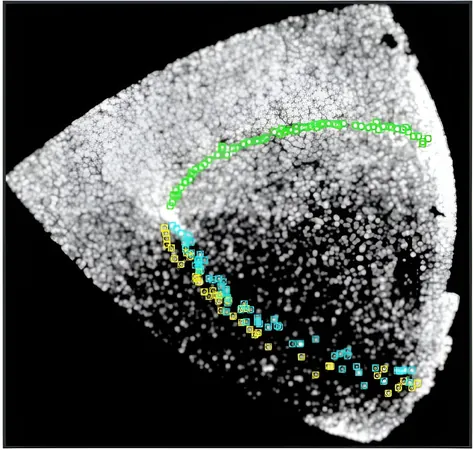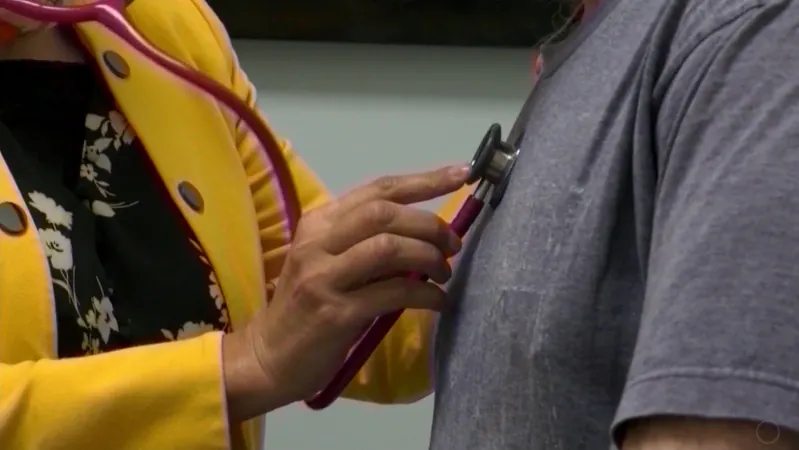
Scientists Discover How to Hit the ‘Pause Button’ on Human Life: Revolutionary Implications for Reproductive Health
2024-10-06
Groundbreaking Study on Human Development
In a groundbreaking study, researchers have revealed that they may have figured out how to effectively hit the ‘pause button’ on human development, opening doors to a potential revolution in reproductive health treatments such as in vitro fertilization (IVF).
Discovering Diapause in Human Embryos
The research team focused on stem cells and discovered that by inhibiting the mTOR signaling pathway—a series of crucial chemical reactions—they could induce a state reminiscent of diapause. Diapause is a biological phenomenon wherein fertilized embryos delay implantation in the uterus until environmental conditions are suitable. This ability to pause development could have transformative implications for how we approach pregnancy and embryo management.
Natural Adaptation in Mammals
In nature, diapause serves as an incredible adaptation. For instance, certain mammals, including bears, can suspend pregnancy if they are malnourished or the timing is unfavorable. They can enter a state of dormancy, allowing them to resume the pregnancy once conditions improve, ensuring the survival of their offspring.
Research Findings and Methodology
In a recent publication in the journal *Cell*, the research team showcased the use of human stem cells and blastocyst models, known as blastoids, to study this phenomenon. Their findings indicated that, similar to other mammals, humans could theoretically enter a diapause-like state. When the mTOR pathway was inhibited, the stem cells and blastoids exhibited characteristics closely aligned with diapause. Impressively, this process was reversible; once the inhibition ceased, development resumed as if uninterrupted.
Expert Insights on Potential Applications
Nicolas Rivron, one of the lead authors, explained, “This potential may be a vestige of the evolutionary process that we no longer make use of. Although we have lost the ability to naturally enter dormancy, these experiments suggest that we could eventually unlock that capability.”
Transformative Implications for Reproductive Health
The implications for reproductive health are staggering. Enhancing mTOR activity could accelerate embryo development, improving IVF success rates. On the flip side, triggering a dormant state might provide a critical time frame to evaluate embryo health before proceeding with implantation, thereby increasing the chances of a successful pregnancy.
The Future of Reproductive Science
The research team's enthusiasm regarding their findings signifies a noteworthy advance in our understanding of human biological processes. The prospect of harnessing this ‘pause button’ could lead to more effective fertility treatments and ultimately assist countless individuals in their journey to parenthood.
Exploring New Frontiers in Human Life
As we unravel the complexities of our bodies, we gain valuable insights into our potential capabilities, showcasing the exciting future of reproductive science. The question remains: are we ready to explore this new frontier in human life?









 Brasil (PT)
Brasil (PT)
 Canada (EN)
Canada (EN)
 Chile (ES)
Chile (ES)
 España (ES)
España (ES)
 France (FR)
France (FR)
 Hong Kong (EN)
Hong Kong (EN)
 Italia (IT)
Italia (IT)
 日本 (JA)
日本 (JA)
 Magyarország (HU)
Magyarország (HU)
 Norge (NO)
Norge (NO)
 Polska (PL)
Polska (PL)
 Schweiz (DE)
Schweiz (DE)
 Singapore (EN)
Singapore (EN)
 Sverige (SV)
Sverige (SV)
 Suomi (FI)
Suomi (FI)
 Türkiye (TR)
Türkiye (TR)